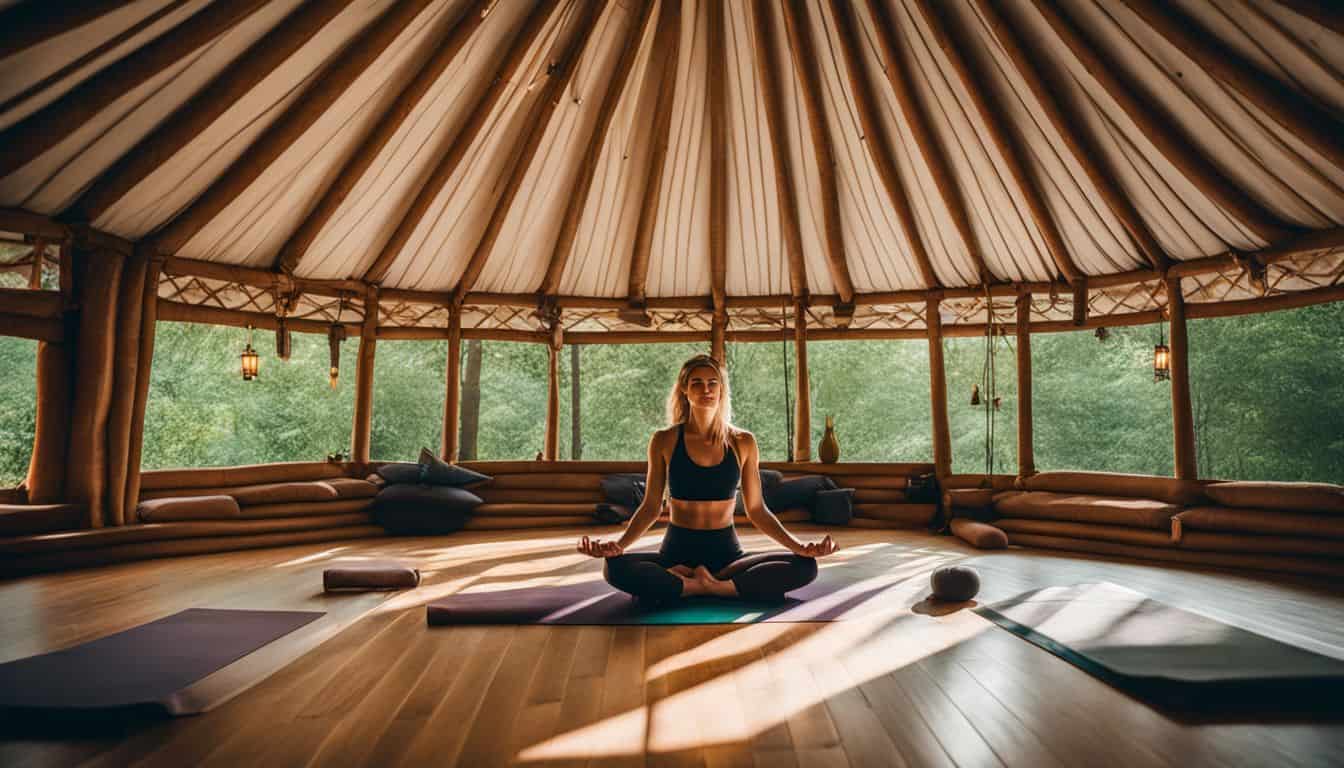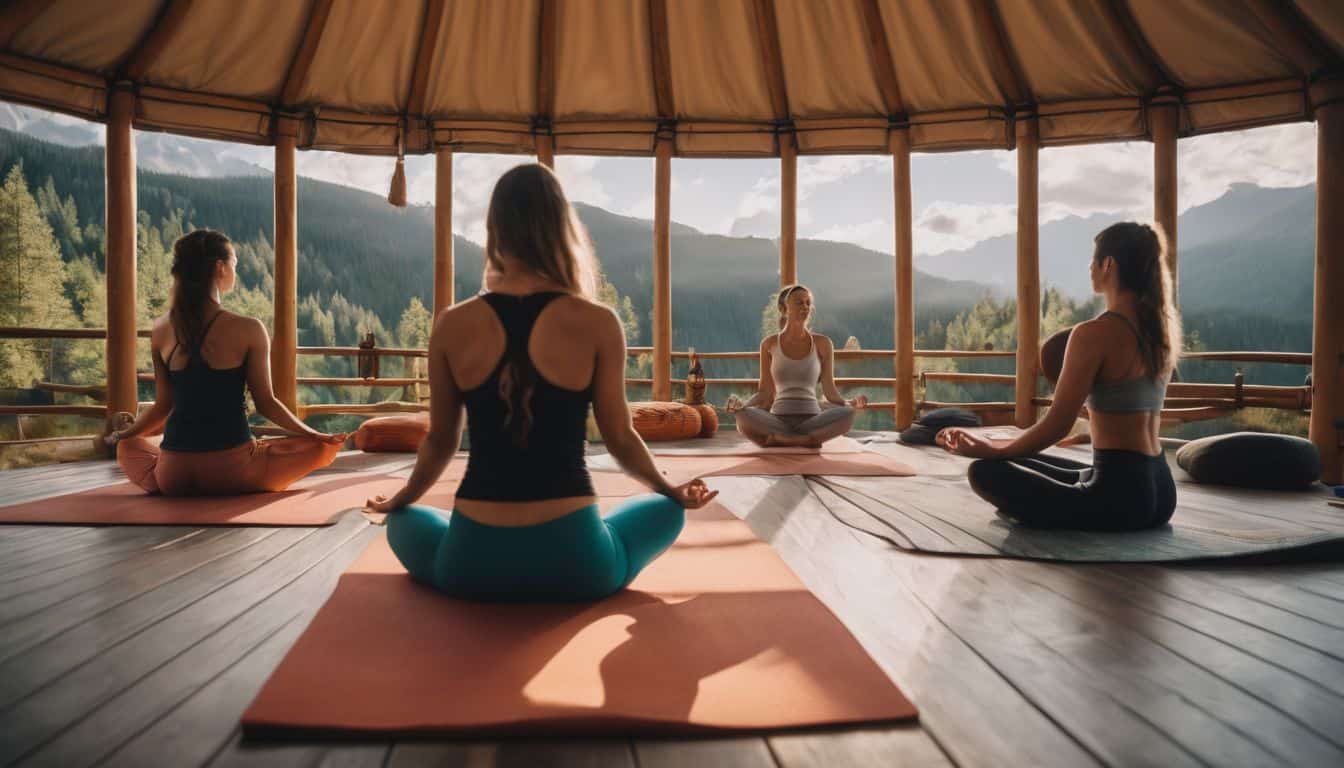In recent years, the wellness and eco-tourism industries have surged in popularity, with travelers seeking experiences that rejuvenate both body and mind while minimizing their environmental impact. Yurt retreats are at the forefront of this trend, offering a unique blend of traditional design and modern comfort that perfectly aligns with sustainable tourism and holistic wellness principles.
The Modern Yurt Experience: A Fusion of Tradition and Innovation
Yurts, circular dwellings traditionally used by nomadic cultures, have been reimagined for the 21st century as luxurious yet eco-friendly accommodations. These structures provide an immersive experience in nature without sacrificing comfort, making them ideal for yurt camping enthusiasts and wellness seekers alike. The circular design of yurts creates a sense of harmony and flow, contributing to a peaceful atmosphere that’s conducive to relaxation and introspection.
Modern yurts are equipped with amenities such as comfortable beds, heating systems, and even private bathrooms, ensuring guests can fully unwind after a day of wellness activities. Using natural materials like wood and canvas in yurt construction further enhances the connection to nature, allowing guests to feel grounded and at peace in their surroundings.
Wellness Features: Nurturing Body and Mind
Yurt retreats provide a holistic approach to wellness, offering a range of features designed to promote physical and mental well-being. Many retreats incorporate dedicated spaces for yoga and meditation within or adjacent to the yurts, allowing guests to practice mindfulness amidst the beauty of nature.
The natural healing environments surrounding yurt retreats often include access to hiking trails, hot springs, or pristine beaches, encouraging outdoor activities that boost physical health and mental clarity. These settings provide the perfect backdrop for stress reduction and digital detox, allowing guests to disconnect from the pressures of daily life and reconnect with themselves and the natural world.
Eco-Tourism Integration: Treading Lightly on the Earth
One of the most compelling aspects of yurt retreats is their commitment to sustainable living and eco-friendly practices. The construction of yurts typically has a minimal environmental impact, with many retreats using locally sourced and sustainable materials. This approach reduces the accommodation’s carbon footprint and supports local economies and traditional craftsmanship.
Many yurt retreats go beyond sustainable construction to implement comprehensive eco-friendly practices. These may include:
- Solar power systems for energy generation.
- Rainwater harvesting and greywater recycling.
- Composting toilets and natural waste management systems.
- Use of organic, locally sourced food in on-site dining options.
- Educational programs on conservation and sustainable living for guests.
By integrating these practices, yurt retreats offer guests an opportunity to experience first-hand how comfortable and enjoyable sustainable living can be.

Notable Locations: From North America to Zanzibar
The global appeal of yurt retreats is evident in their diverse locations worldwide. In North America, destinations like Maine’s Nurture Through Nature and California’s Treebones Resort offer immersive experiences in stunning natural settings. These retreats combine wellness activities with opportunities to explore local ecosystems, from dense forests to dramatic coastlines.
Internationally, the options are equally enticing. Mongolia’s Three Camel Lodge provides an authentic experience in the Gobi Desert, while the UK’s Cotna Eco-Retreat offers a sustainable stay in the picturesque Cornish countryside. For those seeking a tropical paradise, Zanzibar’s Southern Yurts combine beachfront relaxation with cultural immersion.
The Future of Wellness and Eco-Tourism
As the demand for sustainable and wellness-focused travel continues to grow, yurt retreats are well-positioned to lead the way in innovative eco-tourism practices. Many retreats are exploring ways to reduce their environmental impact further while enhancing the guest experience, such as implementing advanced renewable energy systems and developing new programs that deepen the connection between visitors and the local environment.
Moreover, the flexibility and portability of yurts make them an attractive option for remote work retreats, blending wellness and productivity in natural settings. This trend is likely to expand as more people seek alternatives to traditional office environments.

Conclusion
Yurt retreats offer a unique and sustainable approach to wellness and eco-tourism. They allow guests to relax, rejuvenate, and reconnect with nature in a way that respects and preserves the environment. As we seek balance in our lives and our relationship with the planet, these innovative accommodations stand as beacons of sustainable luxury and mindful living.

Leave a Reply